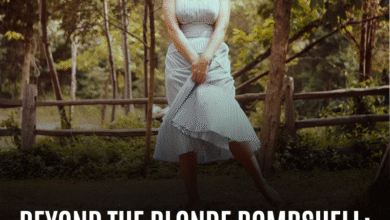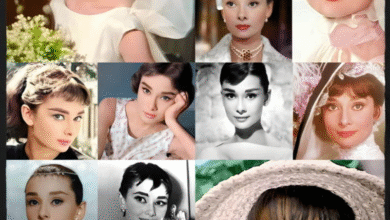Audrey Hepburn Reveals How Faith Shaped Her Life: A Look Beyond Organized Religion
OPINION: This article may contain commentary which reflects the author's opinion.
Audrey Hepburn, one of the most beloved icons of the 20th century, was not only known for her timeless roles in classic films such as Breakfast at Tiffany’s and Roman Holiday, but also for her private yet profound spiritual beliefs. Throughout her life, Hepburn expressed a faith that was deeply personal and distinct from the organized religions of her upbringing. Her reflections on faith, God, and nature offer a fascinating glimpse into the quiet spiritual life of an actress who became a global symbol of elegance, grace, and humanitarianism.
A Personal Faith Not Tied to Organized Religion
Hepburn’s spiritual beliefs were shaped by her upbringing in a family with diverse religious backgrounds. She was born to a Protestant father and a devout Christian Scientist mother, which gave her exposure to a wide array of religious teachings. However, as an adult, Hepburn rejected organized religion, choosing instead to embrace a more personal and inclusive form of spirituality. In a candid quote, she shared, “I have enormous faith, but it’s not attached to any one particular religion. My mother was one thing, my father another. In Holland, they were all Calvinists. That has no importance at all to me.”
This statement highlights Hepburn’s independence from traditional religious structures. While she respected the faiths of her parents, she did not feel bound by them, creating a spiritual identity that was uniquely her own.
Pantheism and a Deep Connection to Nature
In her later years, Hepburn’s spiritual views evolved toward pantheism, a belief that God is present in all of nature and that the universe itself is divine. This pantheistic outlook was reflected in her deep appreciation for the natural world, often speaking of her awe for its grandeur and beauty. She found a profound sense of peace and spirituality in nature, feeling connected to a higher power through the world around her.
One of Hepburn’s most notable reflections on her spiritual life came when she discussed how she saw divine generosity and human effort as intertwined. She said, “How shall I sum up my life? I think I’ve been particularly lucky. Does that have something to do with faith also? I know my mother always used to say, ‘Good things aren’t supposed to just fall in your lap. God is very generous, but he expects you to do your part first.’ So you have to make that effort. But at the end of a bad time or a huge effort, I’ve always had – how shall I say it? – the prize at the end. My whole life shows that.” This quote underscores her belief in the necessity of human effort and the belief that, despite life’s difficulties, divine rewards follow perseverance.
A Reluctance to Define Her Beliefs Publicly
While Hepburn’s faith was a significant part of her life, she was notably private about it. In a 1956 interview, she stated, “My religion has been the same for 27 years but I won’t tell anybody what it is. Not that I’m Mohammedan, or anything surprising. I just keep it to myself.” Hepburn’s reluctance to publicly label her faith highlights her preference for privacy and personal conviction, qualities that she valued deeply in her public life. This approach to spirituality reflects her overall demeanor—elegant, humble, and private.
Despite this, Hepburn’s actions and words often reflected a deep belief in the miraculous and the divine, especially in the context of her humanitarian work. Her dedication to helping children through her work with UNICEF is often seen as an extension of her spiritual values, embodying her belief in the inherent goodness of humanity and the importance of helping others.
Faith and Humanity: Reflections in Her Humanitarian Work
Hepburn’s humanitarian efforts, particularly her work with UNICEF, serve as a testament to her deep belief in the importance of kindness, empathy, and service to others. Her belief in divine generosity aligned with her commitment to improving the lives of children around the world, often emphasizing that we must “do our part” in making the world a better place. Her faith, rooted in her personal understanding of God and nature, played a significant role in her life’s work, inspiring her to contribute to causes that uplifted the most vulnerable members of society.
A Legacy of Quiet Faith and Grace
Audrey Hepburn’s spiritual journey was deeply personal and not defined by any one religion. Instead, she embraced a faith that was rooted in love, kindness, and a profound connection to the natural world. While she did not seek to define or broadcast her beliefs to the public, her actions and reflections on life reveal a woman who saw the divine in everyday moments—whether in the beauty of nature, the generosity of others, or the quiet efforts of making the world a better place. Hepburn’s legacy continues to inspire not only for her remarkable film career but also for her compassionate spirit, shaped by a faith that transcended religious labels and was, ultimately, about love, humanity, and kindness.



